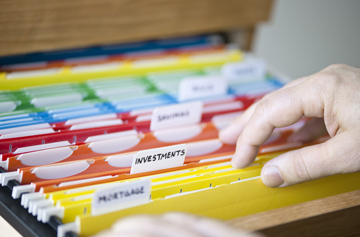There is no doubt that one’s financial or legal documents and data are supposed to be strictly confidential. But you may need to share this information with your legal beneficiaries at some point. Whatever your important data includes – from your birth certificate or driver’s license to more important documents such as legal power of attorney, living will or advance directives – document scanning solutions provide the best way to make them all digital, and make it easy for you to organize your data.
What is a personal document locator?
A personal document locator is more like a form you need to fill before a medical appointment or before opening a new bank account. A detailed list of what information you store and where you store it and details about your primary advisers and contacts form the content of a personal document locator.
A well-designed personal document locator can help you and your beneficiaries
- access benefits that may have gone unnoticed and unclaimed otherwise
- remain stress-free during difficult times
- save money on professional services.
All the above are the major advantages, with the added benefit that all your information is secured in a single location.
It is about accepting and facing your mortality. You may go, but your document locator is here to stay. Though filling up everything – each detail – takes time and effort, the result will be very valuable for your heirs. To start with, one has to keep a list of documents, where they are kept or saved, and who should be given authority to access them.
Take time and effort to create a list of your important documents. Revise the list over and over again before identifying where they are located. In this process, make sure you review the documents and confirm they are the most recent and updated ones and whether you should change the location of the documents. During this process, also make sure that the information remains private and secure.
While most of the important documents you have might be in hard copy, it is advisable to scan them all and save them in multiple, secured locations (such as a thumb drive / hard disk / personal computer), so that if any of those documents are lost or stolen, you will still have access to the data. Make copies of your health insurance cards, credit cards, driver’s license, passport, birth certificate etc. This also can work as an inventory for your beneficiaries.
Also, though optional, consider having a letter of instructions. Its content should be related to what data a person needs to know, and when they need to access it. Though not a legal document as such, a letter of instructions can have clear instructions to the person you trust with your locator.

- He/she must be trustable, and should store your data in the most secure place.
- To some extent, he/she must be willing to edit and update the information as and when needed. Hiring a legal or financial professional can help you get an annual review.
- He/she must be physically available to meet your beneficiaries at the allotted time.
There are good document scanning companies that could help you scan all your paper-based documents and organize them in such a way that all you need to do will be to allot specific beneficiaries to access your data.



